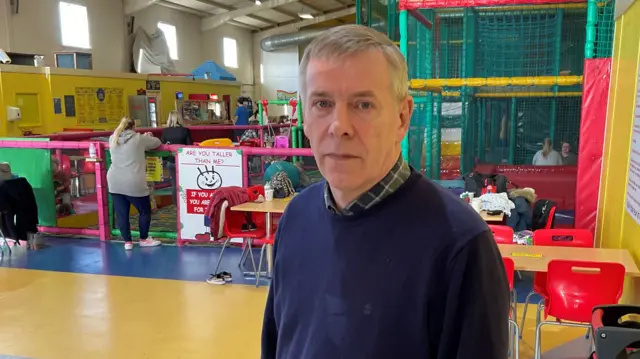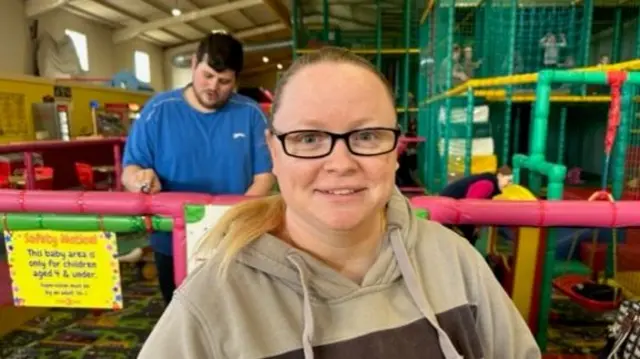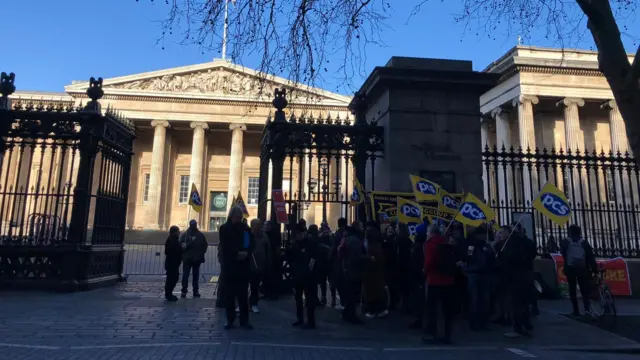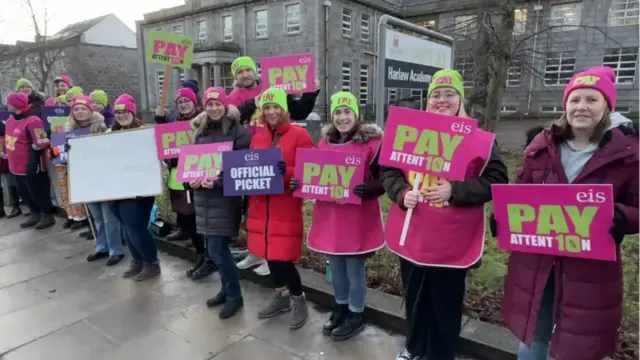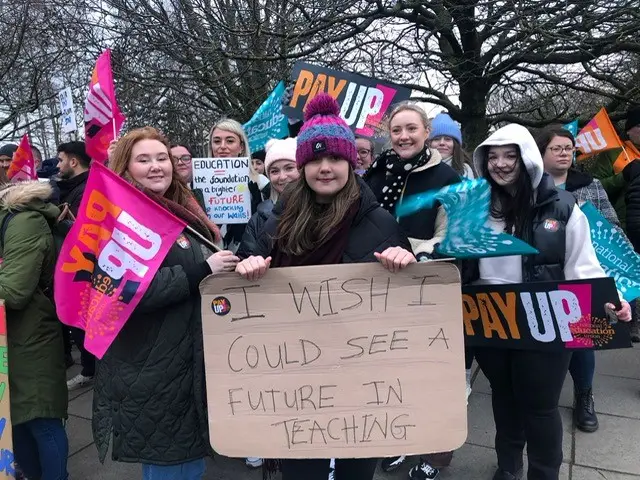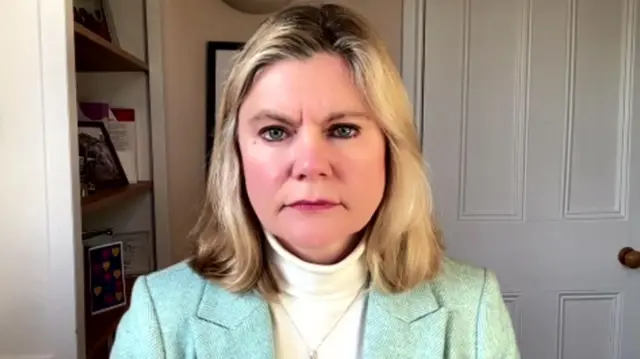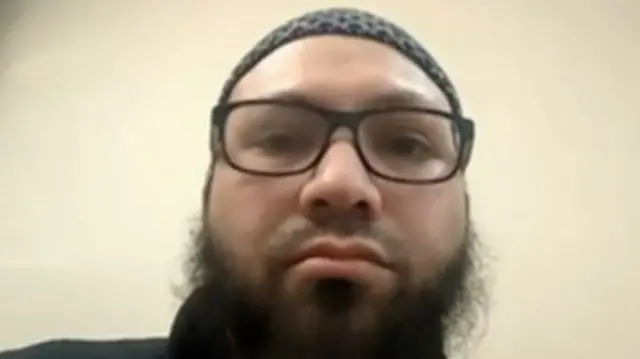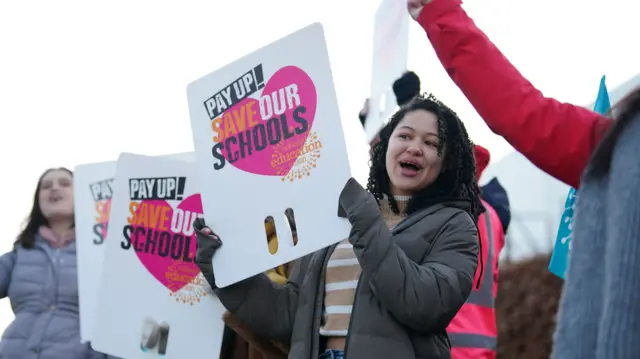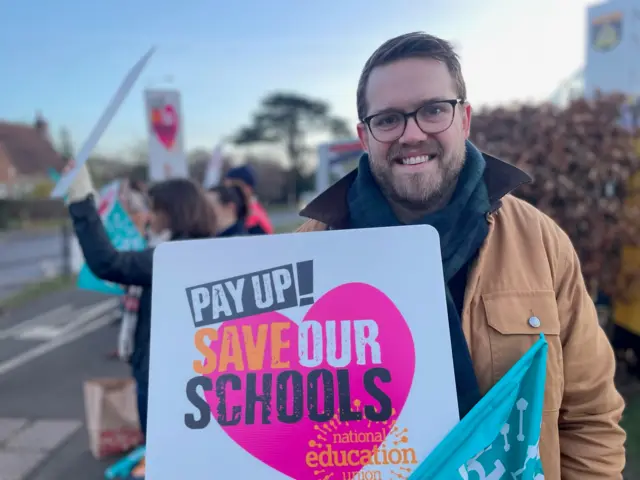In pictures: Workers take to picket linespublished at 11:46 GMT 1 February 2023
In what is expected to be the biggest day of industrial action in a decade, hundreds of thousands of workers have joined picket lines across the country.

Yasmin, who is head of Year 9 at Myton School in Warwickshire, has brought her toddler Solomon to the picket line
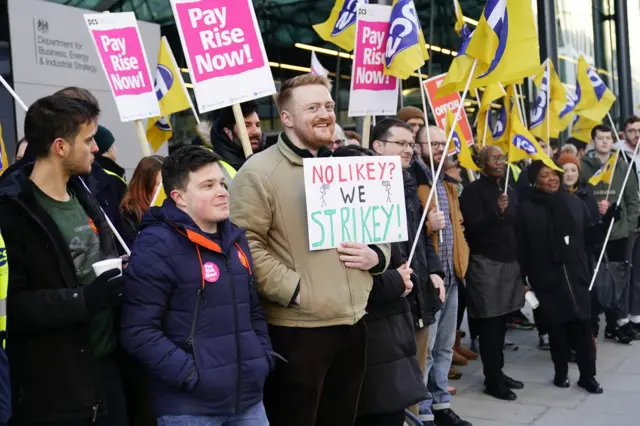 Image source, PA Media
Image source, PA MediaA PCS union member on strike holds up a sign saying "no likey, we strikey" in Westminster
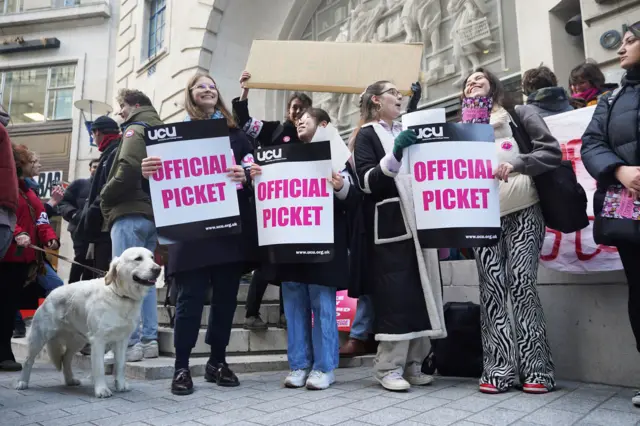 Image source, PA Media
Image source, PA MediaUCU members have been joined by a four-legged friend at a picket line outside the London School of Economics
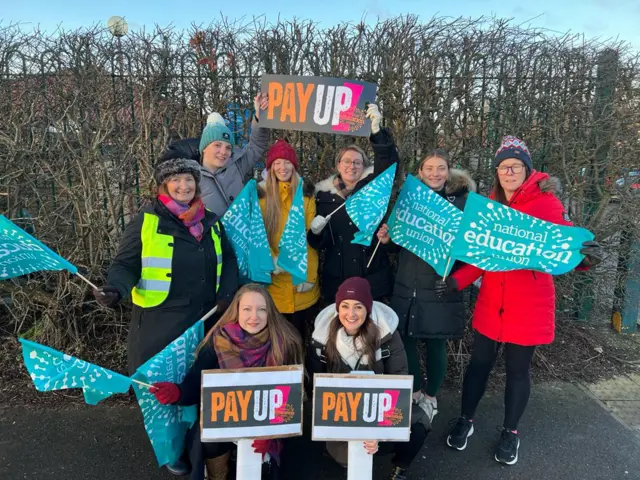
"Pay up," say teachers in Scarborough who have joined picket lines today
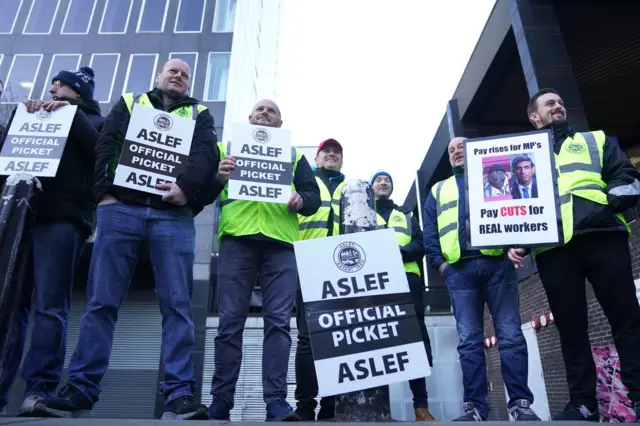 Image source, PA Media
Image source, PA MediaAslef members hold placards outside London Euston station in their walkout over pay

